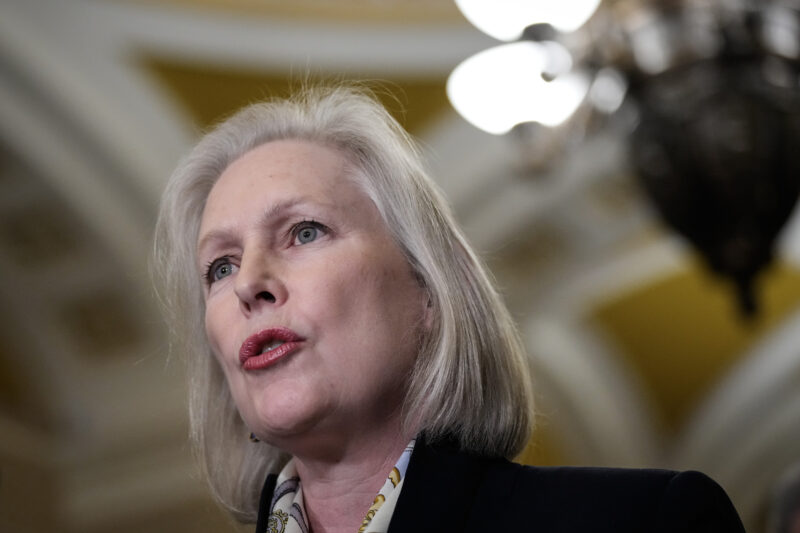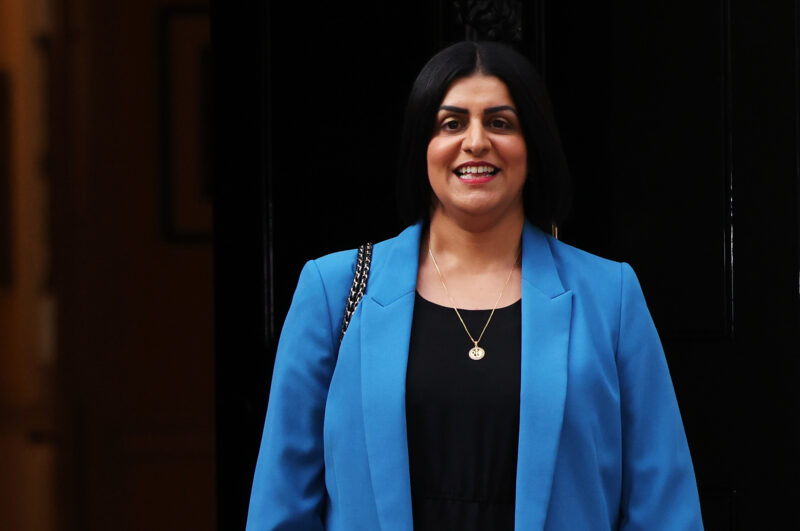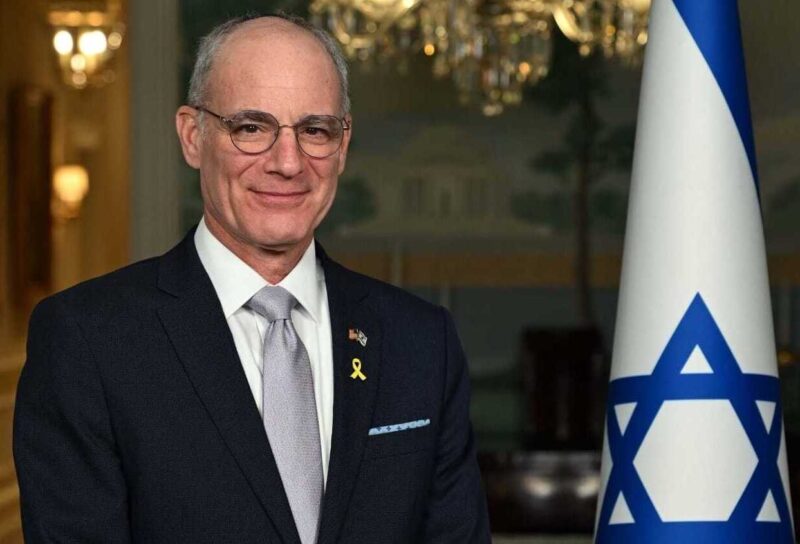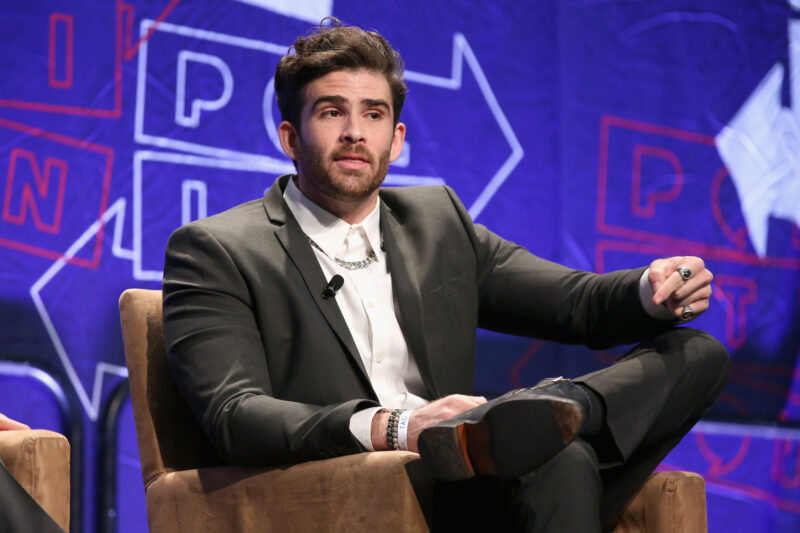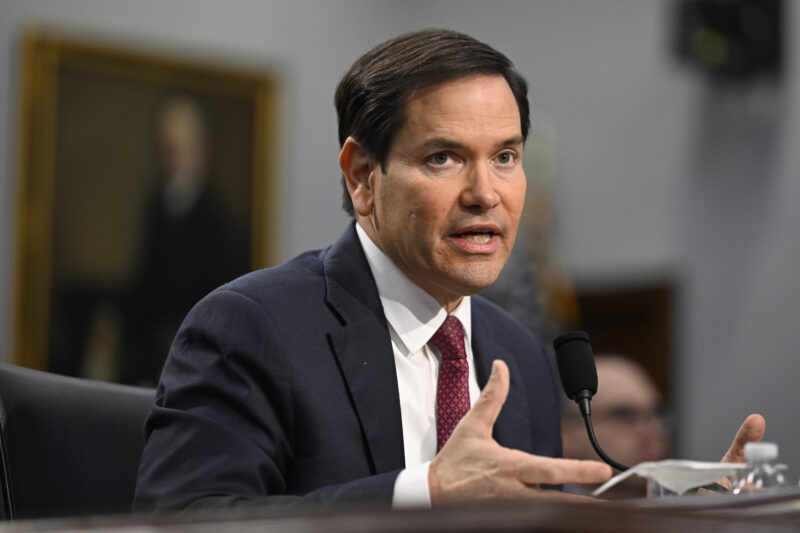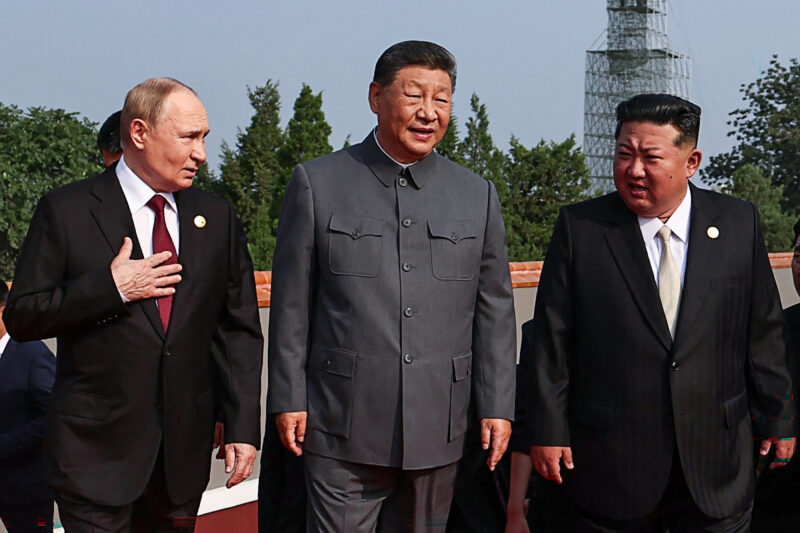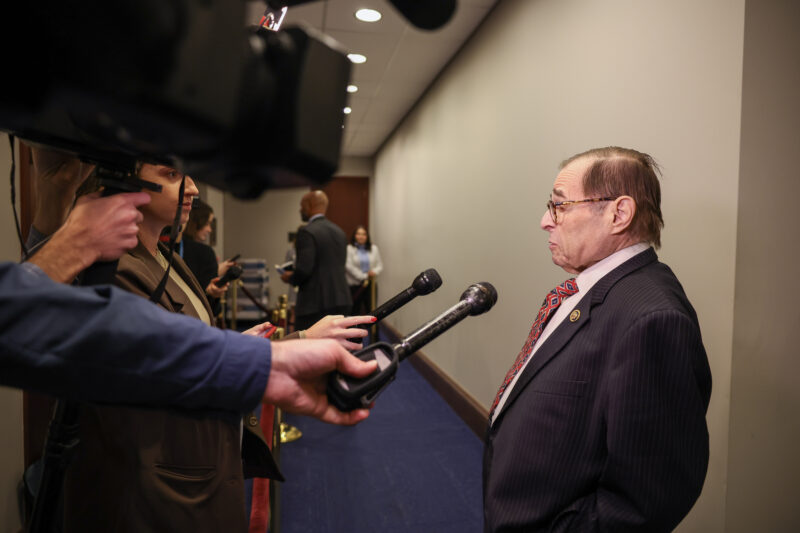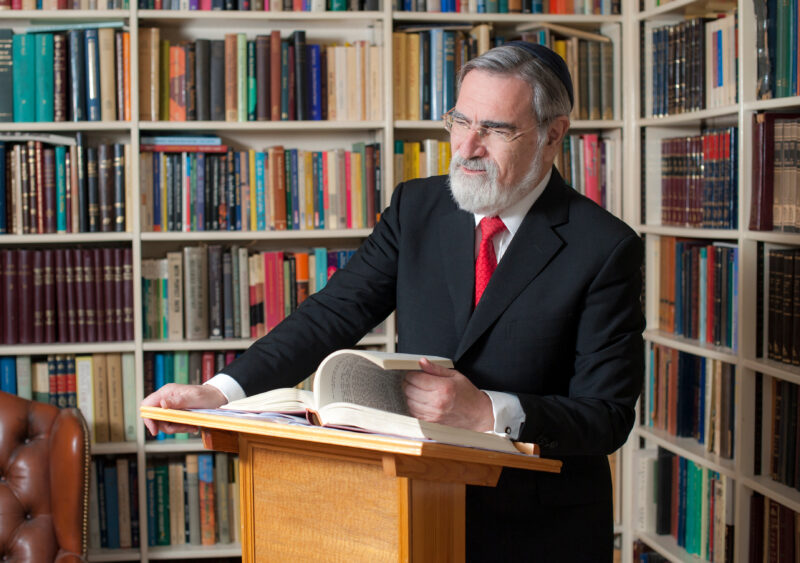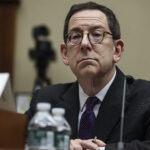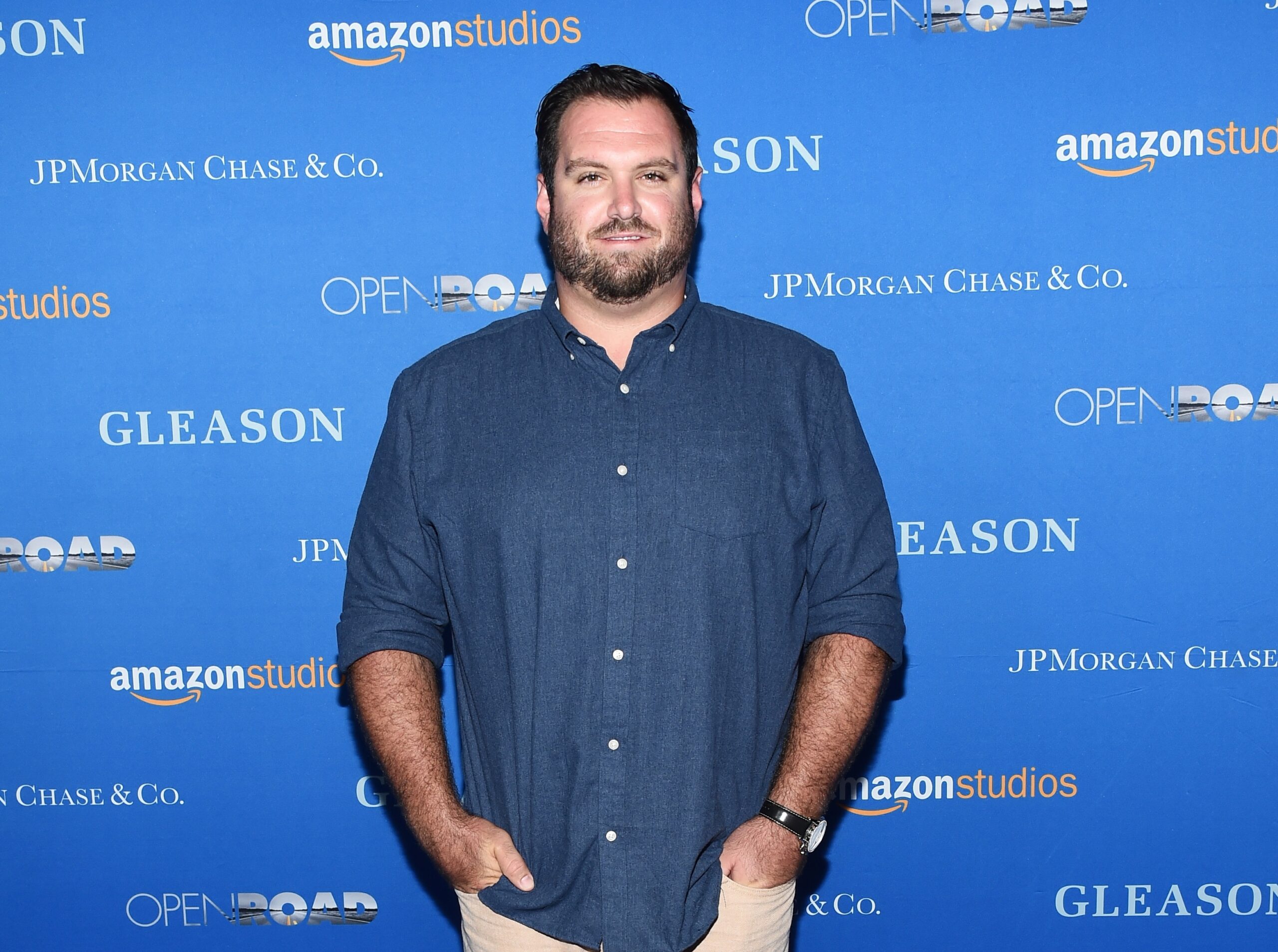The co-chairs of the Senate antisemitism task force called the latest FBI hate crimes report ‘troubling’ and ‘disturbing’

U.S. Senate
Sens. Jacky Rosen (D-NV) and James Lankford (R-OK)
Sens. James Lankford (R-OK) and Jacky Rosen (D-NV), the co-chairs of the Senate antisemitism task force, highlighted concerns about the latest FBI hate crimes statistics showing a record-high level of antisemitic hate crimes in 2024, and called for further action.
The FBI reported earlier this week that hate crimes against Jews accounted for 70% of all religiously motivated hate crimes in 2024 and hit their highest level since the FBI began collecting data in 1991, even as overall hate crimes rates across the country decreased. A total of 1,938 antisemitic hate crimes were reported to the FBI’s collection program last year.
“The FBI’s latest hate crimes report paints a troubling picture. Jewish Americans continue to be targeted simply because of their faith and heritage in schools, synagogues, and in their own neighborhoods,” Lankford said in a statement. “This disturbing trend demands urgent attention. I remain committed to confronting antisemitism and strengthening reporting to fully understand the scope of this threat. By working together, Congress, the Administration, and law enforcement can help ensure that every Jewish American can live without fear.”
Rosen said, “All Americans should be deeply troubled by the sharp increase in anti-Jewish hate crimes detailed in this report.”
“As one of the co-chairs of the Senate Bipartisan Task Forces for Combating Antisemitism, I remain steadfast in our commitment to work across party lines to root out the scourge of antisemitism,” Rosen continued. “We’ll continue pushing to ensure the federal government keeps Jewish Americans safe from discrimination, violence, and hate.”
The legislation would extend the stockpile through 2029 from its current expiration in 2027

Bill Clark/CQ Roll Call via AP Images/Al Drago/Getty Images
Sens. Jim Banks (R-IN) and Jacky Rosen (D-NV)
Sens. Jim Banks (R-IN) and Jacky Rosen (D-NV) are set to introduce legislation on Wednesday to reauthorize the U.S. weapons stockpile in Israel through 2029 from its current expiration date of 2027.
The stockpile allows the U.S. to preposition weapons in Israel that it can provide to Jerusalem for use in crisis scenarios. Lawmakers had also worked in recent years to pass legislation to review and modernize the weaponry stored in the stockpile.
“This bill strengthens America’s military readiness and ensures we’re prepared for any crisis in the region. Supporting Israel, our most important Middle East ally, directly protects U.S. interests and helps keep Americans safe,” Banks said in a statement.
“I’m proud to help introduce this bipartisan legislation that will bolster our defensive posture as well as continue to enable us to swiftly support our ally Israel with the resources it needs to protect itself,” Rosen added.
The bill’s introduction comes amid the Senate Armed Services Committee’s 2026 National Defense Authorization Act markup this week.
Senate Minority Leader Chuck Schumer is the only one of the top four congressional leaders not to react so far

Andrew Harnik/Getty Images
(L-R) Senate Democratic leadership, Sens. Brian Schatz (D-HI), Bernie Sanders (I-VT), Elizabeth Warren (D-MA), Amy Klobuchar (D-MN), Senate Majority Leader Chuck Schumer (D-NY), Senate Majority Whip Richard Durbin (D-IL), Tammy Baldwin (D-WI), Cory Booker (D-NJ), Mark Warner (D-VA), Catherine Cortez Masto (D-NV), and Chris Murphy (D-CT), pose for a group photo in the U.S. Capitol on December 3, 2024 in Washington, DC.
Israel’s strikes on Iranian military and nuclear targets are prompting fractured responses from Senate Democrats, with a few offering full support for Israel and others forcefully condemning the strikes, while some have sought to carve out a path somewhere in the middle.
Sen. Jacky Rosen (D-NV), one of the most vocal pro-Israel Democrats in the Senate, offered her first comments on the strike Friday morning, saying that Iran cannot be allowed to have a nuclear weapon, and is “closer than ever” to developing one, as reflected in the International Atomic Energy Agency’s recent report that Iran had violated its nonproliferation commitments.
“The Iranian regime and its proxies have been very public about their commitment to the destruction of Israel and Jewish communities around the world. We should take them at their word,” Rosen said. “Israel acted in self-defense against an attack from Iran, and the U.S. must continue to stand with Israel, as it has for decades, at this dangerous moment.”
She also emphasized the need to protect U.S. troops in the region.
Sen. John Fetterman (D-PA), long a proponent of strikes on Iran, was the first Senate Democrat to offer support for the operation.
On the other side of the spectrum, progressives have been loudly denouncing the strikes.
Sen. Jeanne Shaheen (D-NH), the ranking member of the Senate Foreign Relations Committee, said that the strikes are “an escalation that is deeply concerning and will inevitably invite counterattacks.”
She added that they endanger nuclear talks and U.S. servicemembers.
“I agree with President Trump’s instinct to distance the U.S. from Israel’s actions, but Iran and its proxies are unlikely to differentiate the U.S. from Israel. This is not the time to tie our hands by reducing our diplomatic presence and resourcing as the State Department and OMB [Office of Management and Budget] plan to do,” Shaheen said. “This is a dangerous moment for the region and world. The Trump Administration must quickly move to de-escalate the situation.”
Other progressive Senate Democrats have tried to accuse Israel of undermining President Trump’s wishes, even though Trump himself has publicly expressed support for the attacks in statements and media interviews into Friday morning.
“This strike by Iran is clearly a stick in the eye for the American president because in addition to striking nuclear facilities and at least one of their top research scientists, reportedly Israel also killed the chief negotiator who was negotiating with the United States of America and so it’s pretty transparent that this was an effort to submarine, to undermine our diplomacy,” Sen. Chis Murphy (D-CT) said on Friday morning on “Morning Joe.” “Now, it looks as if diplomacy has no chance.”
A handful of other Democrats have sought some path between those two poles, acknowledging Israel’s right to defend itself while pushing for deescalation and averting a concerted regional war.
Sen. Mark Warner (D-VA), the vice chair of the Senate Intelligence Committee, emphasized the need to “avoid steps that will cause further escalation across the region,” while also stating, “Iran has threatened the safety of Israel and the region and Israel has an undeniable right to defend itself and its citizens.”
He said that his “foremost concern” is protecting U.S. personnel in the Middle East.
Sen. Chris Coons (D-DE) said that the details, justification and consequences of the operation are unknown, while emphasizing that the U.S. had made clear that Israel acted alone and the administration continues to pursue peace.
“I have long believed that the world cannot tolerate a nuclear-armed Iran and that Iran and its proxies pose a serious threat to American interests. I am deeply concerned by the IAEA Board of Governors’ determination earlier today that Iran has failed to comply with the Nuclear Non-Proliferation Treaty and Iran’s defiant subsequent declaration of a new underground enrichment facility,” Coons said. “Even so, tonight’s actions have the potential to lead to dangerous escalation and a full-scale regional war. I am following developments closely tonight and am urging restraint.”
“Everyone’s goal must now be the prevention of a full-blown regional war,” Coons continued. “The Trump administration and our regional partners must work together to reduce the risks of escalation and work towards a path forward that provides safety and stability for the entire region.”
As of Friday morning, Senate Minority Leader Chuck Schumer (D-NY), the top Senate Democrat, was the only one of the top four congressional leaders who had yet to speak out about the attacks.
Schumer attended the Friday morning funeral of former Rep. Charlie Rangel (D-NY) where he delivered a eulogy, and was expected to receive a briefing on the strikes afterward, according to a source familiar with his plans. Schumer was expected to issue a statement after the briefing.
The secretary of state said that terrorism and weapons sanctions would remain in place if Iran’s other malign activity is not addressed under a nuclear deal

Anna Moneymaker/Getty Images
Secretary of State Marco Rubio speaks during a Senate Foreign Relations Committee hearing in the Dirksen Senate Office Building on May 20, 2025 in Washington, DC. Rubio testified on President Trump's FY2026 budget request for the State Department.
Secretary of State Marco Rubio said in his first appearance on Capitol Hill since being confirmed as secretary of state that Iran’s support for regional terrorist proxies has not been part of the ongoing talks between the Iranian government and Middle East envoy Steve Witkoff, which Rubio said have been focused wholly on Iran’s nuclear program and enrichment capabilities.
At the same time, Rubio insisted that any sanctions related to terrorist activity and weapons proliferation would remain in place if such issues are not part of the nuclear deal.
Rubio’s comments indicate the deal might still be subject to what some critics in the United States and the region described as a key flaw of the original nuclear deal — that it failed to address other malign activity by the regime. One U.S. lawmaker who traveled to the Middle East recently said that U.S. partners in Israel and the Arab world had argued that any deal must include non-nuclear provocations.
Rubio added that sanctions will remain in place until a deal is reached, and that European partners are working separately on re-implementing snapback sanctions, potentially by October of this year, when such sanctions expire.
He also said that Iran cannot have any level of nuclear enrichment under a nuclear deal, as it would inevitably provide a pathway for Iran to enrich to weapons-grade levels.
“About 90% of the work of enrichment is getting to that 3.67% level [necessary for civilian nuclear power]. After that, the rest of it is just a matter of time,” Rubio said. “They [Iran] claim that enrichment is a matter of national pride. It is our view that they want enrichment as a deterrent. They believe that it makes them a threshold nuclear power, and as a result, [become] untouchable.”
Rubio said that reaching a nuclear deal will not be easy, but that it is the administration’s preference. He reiterated that Iran can be permitted to have nuclear energy for civilian use, but only if it imports nuclear material from elsewhere. He said at a second hearing later in the day that a so-called 123 Agreement for civilian nuclear cooperation with the United States or an equivalent deal would be possible if Iran dismantles its enrichment capacity.
Addressing the war in Gaza, Rubio said that the U.S. is ultimately hoping to end hostilities, adding that ending the war will require Hamas freeing the hostages and ensuring that Hamas and similar terrorist groups do not maintain power in Gaza. He placed blame on Hamas for failing to agree to a ceasefire.
Rubio said that regional partners are willing to step up to help support the reconstruction of Gaza, but said that the territory’s future governance will be the key question going forward. He said that a stable governing authority capable of providing peace and security will be necessary to keep Hamas out of power.
Rubio also denied any plans for forcible or permanent relocation of Palestinians in Gaza, but said that the administration had been engaged in discussions with other regional partners about allowing Gazans who want to temporarily relocate to do so. He said he was not aware of any such conversations with Libya, as a recent NBC News report suggested.
“You don’t want people trapped [in Gaza]. They may want to come back, they may want to live there in the future, but right now, they can’t,” Rubio said. “And if there’s some nation willing to accept them in the interim period, yes, we’ve asked countries preliminarily whether they would be open to accepting people, not as a permanent situation, but as a bridge towards reconstruction.”
He said that the U.S. was “pleased to see that aid is starting to flow” into Gaza, after Israel had blocked it for 11 weeks.
He rebutted accusations that Israel is seeking to destroy Gaza, saying that Israel has told the U.S. and the world that “they need to root out the remaining elements of Hamas — who, by the way, have been an impediment to multiple ceasefires.”
Later in the day, Rubio reiterated that the U.S. sees resuming humanitarian aid as a priority and has encouraged Israel to allow aid into Gaza — a divergence from some Israeli officials and congressional Republicans who have opposed allowing aid into Gaza. He appeared to acknowledge that the humanitarian situation in Gaza is dire.
“Many of you have noticed there’s been a growing number of anti-Hamas protests and demonstrations as well. So there are people there that understand that this is a root cause of it,” Rubio said. “That said, you have this, you have this acute, immediate challenge of food and aid not reaching people, and you have existing distribution systems that could get them there.”
He said that Israel can defeat Hamas and prevent diversion of aid while still permitting “sufficient quantities” of aid to move into the territory. He said that organizations like the World Food Program have the capacity to immediately begin distributing aid, reflecting the reticence of Israeli and U.S. officials to rely on the U.N. for distribution.
The secretary of state continued to embrace the administration’s policy of revoking student visas and residency permits from individuals alleged to be involved in anti-Israel activity on college campuses, adding that such revocations will continue.
“We’re going to do more. There are more coming. We’re going to continue to revoke the visas of people who are here as guests and are disrupting our higher education facilities,” Rubio said. “I want to do more, I hope we can find more.”
Rubio said later in the day that thousands of student visas have been revoked, but many for reasons unrelated to anti-Israel activity.
He denied reports that the administration is planning to eliminate the position of U.S. security coordinator for Israel and the Palestinian territories, saying that there had instead been discussions about bringing the mission under the authority of the U.S. embassy in Jerusalem.
Rubio also pushed back on accusations from Sen. Jacky Rosen (D-NV) that the administration was “abandoning” a push for normalization of relations between Israel and Saudi Arabia, saying instead that “the Saudis are the ones that have expressed their inability to move forward on it, so long as the conflict is happening in Gaza. But we would love to see normalization.”
The secretary of state spoke at length about the situation in Syria and the administration’s decision to remove sanctions on the country. He acknowledged that, even with U.S. engagement, the situation in Syria could still collapse, but argued that collapse would have been a certainty if the U.S. had not chosen to engage and lift sanctions.
“It is our assessment that, frankly, the transitional authority, given the challenges they’re facing, are maybe weeks, not many months, away from potential collapse and a full scale civil war of epic proportions, basically the country splitting up,” Rubio said.
Despite President Donald Trump’s announcement that the U.S. would remove “all” sanctions from Syria, Rubio said in the second hearing that the sanctions would be removed “incrementally.” He said that Syria’s designation as a state sponsor of terrorism should be removed if Syria meets the conditions for such a move.
Rubio said that resolving internal divisions, restoring a unified Syrian national identity and creating a situation in which millions of displaced persons can return will be critical challenges going forward.
Rubio described the fall of the Assad regime and the possibility of a stable and peaceful Syria as an “opportunity for Israel,” despite the Israeli government’s deep concerns about the new Syrian government and its leader’s past jihadi loyalties.
“They’re not viewing themselves as a launch pad for revolution. They’re not viewing themselves as a launch pad for attacks against Israel,” Rubio said. “So we think this is an extraordinary thing, if, in fact, you have in Syria a stable government that encompasses all the elements of their society and has no interest whatsoever in fighting wars with Israel over borders or anything else. I think that’s an extraordinary achievement for Israel’s security.”
He said that the U.S. has been working to mediate conflicts between Turkey and Israel inside Syria, but added that Syrian government decisions in the medium term about whether to allow Turkey or Russia to maintain bases inside Syria will be a key issue going forward.
He said Iran is still working to foment violence inside Syria, which he characterized as one of the most critical threats to the new government’s stability.
Rubio said Trump had moved more quickly than anticipated in meeting with Syrian President Ahmed al-Sharaa, but said that removing sanctions will allow regional partners to surge aid in, helping to build a more stable government and unify armed forces in the country.
But Rubio also said that action from Congress will be needed to repeal other sanctions legislation like the Caesar Act that can only be temporarily waived by the president, pending performance from the Syrian government.
He described the situation in Syria as the “first test” of what he characterized as a new approach to U.S. foreign aid and engagement driven more by local personnel and bureaus than Foggy Bottom.
Rubio said that the U.S. Embassy in Syria remains closed due to concerns about potential attacks from other armed groups in the country, explaining that the U.S. does not see the new government led by former jihadist fighters as a security threat.
He said that ISIS, with which al-Sharaa was previously affiliated, “hates the transitional authority, and they hate al-Sharaa, and they hate everybody in his government and I think pose a grave risk to them.”
He said that the Syrian government is willing to take over counter-ISIS operations but currently lacks the capacity to do so.
He added that stability in Syria would help bring stability in Lebanon, and if those two countries become stabilized, it “opens up incredible opportunities around the region for all kinds of peace and security and the end of conflicts and wars.”
Rubio denied any knowledge related to a potential gift of a Boeing 747 jet from Qatar to Trump or the U.S. government.
Asked about the situation, the secretary of state declined to speak publicly about conversations with the United Arab Emirates regarding its backing of one of the warring parties in Sudan that the U.S. has found is committing genocide, but said that it doesn’t “serve the interests” of international parties to back belligerents in the conflict “because instability there is going to create a breeding nest for radicalism.”
Trump in Riyadh as checkbook diplomacy reshapes foreign policy

Win McNamee/Getty Images
President Donald Trump and Saudi Crown Prince Mohammed bin Salman interact with officials during a “coffee ceremony” at the Saudi Royal Court on May 13, 2025, in Riyadh, Saudi Arabia.
Good Tuesday morning.
In today’s Daily Kickoff, we look at how economic and business opportunities are overtaking traditional foreign policy on President Donald Trump’s trip to the Middle East, and report on Israeli Prime Minister Benjamin Netanyahu’s call for Israel to “wean” itself off of U.S. military aid. We also talk to Leo Terrell about the Department of Justice’s efforts to address campus antisemitism, and spotlight an Israeli boarding school that works to promote a shared society in a post-Oct. 7 landscape. Also in today’s Daily Kickoff: Edan Alexander, Oskar Schindler and Sen. Jacky Rosen.
What We’re Watching
- President Donald Trump is in Riyadh, Saudi Arabia, today for meetings with senior officials. He met earlier today with Saudi Crown Prince Mohammed bin Salman.
- Also in Riyadh, the Saudi-U.S. Investment Forum kicked off earlier today. Speakers at the daylong summit include Treasury Secretary Scott Bessent, Commerce Secretary Howard Lutnick, the White House’s David Sacks, White House advisor Elon Musk, Palantir’s Alex Karp, Blackstone’s Stephen Schwarzman, Amazon’s Andy Jassy, FIFA President Gianni Infantino, LionTree’s Aryeh Bourkoff, BlackRock’s Larry Fink, Alphabet’s Ruth Porat, BDT & MSD Partners’ Dina Powell McCormick and the Saudi ministers of energy, sports, investment, finance, economy, tourism and housing.
- An Israeli delegation is in Doha, Qatar, today for renewed ceasefire and hostage-release talks.
- In Washington, the Senate Foreign Relations Committee is holding a hearing on East Africa. This afternoon, the Senate Armed Services Committee will hold a hearing on the U.S.’ missile defense budget request.
- At 10:45 a.m. ET, Sen. Mitch McConnell (R-KY) will deliver remarks during the Center for Strategic and International Studies’ Global Security Forum in Washington.
- Sens. Brian Schatz (D-HI), Cory Booker (D-NJ), Chris Coons (D-DE) and Chris Murphy (D-CT) are planning to force a floor vote as soon as today on condemning the potential gift of a Qatari luxury jet to President Donald Trump.
- Dan Senor will deliver 92NY’s annual State of World Jewry address tonight in New York.
What You Should Know
A QUICK WORD WITH Gabby deutch
President Donald Trump arrived in the Middle East today for the first major international trip of his second term, where he’ll visit Saudi Arabia, Qatar and the United Arab Emirates. He traveled to the region just as his administration secured a major diplomatic breakthrough: the release of Edan Alexander, the final living American hostage, from Hamas captivity in Gaza.
But Trump will not be visiting Israel to herald Alexander’s release. There will be no victorious photo shoot with Israeli Prime Minister Benjamin Netanyahu, because all reports indicate that the U.S. secured Alexander’s release without even informing the Israelis about the negotiations. Trump will not be visiting Israel at all, dealing another blow to America’s closest ally in the region at a time when ties appear to be straining between Jerusalem and Washington.
Instead, the president will be meeting with the leader of a country that serves as a chief sponsor of Alexander’s captors — just days after Trump accepted the gift of a $400 million luxury jet from the Qatari royal family to use as Air Force One, which quickly sparked concern from ethics experts, congressional Democrats and critics of the Gulf state, which has close ties to Hamas leaders.
The gift of the Qatari plane may be a harbinger of an administration that prioritizes business deals over national security. No further diplomatic victories are expected. After Trump said last week that he would make a “very, very big announcement” before his trip to the Middle East, many observers thought that news would be related to the region. But a White House spokesperson told Jewish Insider that it was instead referring to a drug-pricing executive order he signed on Monday.
The trip is generating a quiet panic of sorts among members of the pro-Israel and Jewish communal establishment over how the administration’s primary focus on mega dealmaking is eclipsing traditional foreign policy objectives — rendering moot much of the congressional lobbying and advocacy work promoting a strong U.S.-Israel relationship, as well as Israel’s own approach to its relationship with Washington.
A message circulating among insiders this week captures the mood: “All the investment in communal organizations and institutions like Congress are meaningless in this moment and pale in comparison to having a sovereign wealth fund that can get Trump to change his tune on Houthis, Iran, Gaza etc.” (Saudi officials reportedly backed a U.S.-Houthi ceasefire last week, and have been encouraging of U.S. nuclear talks with Iran in an effort to bring more economic stability to the region.)
Indeed, White House officials have said that national security is not expected to be a major part of Trump’s conversations this week. Rather, trade and investment deals are the focus of the visits, along with announcements of defense spending agreements.
In the recent past, a trip like this might have been likely to feature talk of normalization between Saudi Arabia and Israel. Steve Witkoff, Trump’s Middle East envoy, said last week that he expects to be able to announce progress on additional countries joining the Abraham Accords in the next year. But at least publicly, progress on normalization between Israel and Saudi Arabia has stalled.
“It looks like it fell off a cliff,” David Makovsky, a distinguished fellow at The Washington Institute for Near East Policy, told JI.
A report from Reuters indicates the U.S. might give Saudi Arabia what has been one of its primary asks of Washington — support for a civil nuclear program in the Gulf monarchy — without tying it to the demand that Saudi Arabia establish diplomatic ties with Israel, as was previously expected in a deal. The U.S. also recently approved a major arms sale to Riyadh.
“What you’re seeing is that President Trump has an idea of what is in our interest, and that comes first,” Dennis Ross, a former State Department official who worked in both Democratic and Republican administrations, told The Washington Post. “He defines the nature of our interests abroad not through a geopolitical or security context, but an economic, financial and trade frame. I think President Trump might have the view that ‘We give [Israel] $4 billion a year in military assistance. I do plenty to support the Israelis.’”
Leading up to the trip, reports emerged suggesting that Trump is unhappy with Netanyahu’s decision to launch another major offensive in Gaza. This isn’t just a policy disagreement; it’s about Trump’s personal interest in developing the region, according to NBC News, which reported that he thinks further destruction in Gaza will make it harder to rebuild.
Ultimately, it appears that this trip could be a harbinger for the second Trump administration’s approach to the region. With Trump-branded projects being announced in Saudi Arabia and Qatar, a Houthi-U.S. ceasefire secured and a potential Iran nuclear agreement on the horizon, the “art of the deal” is looking like it will leave Israel largely out of the equation.
legal crackdown
Leo Terrell: DOJ plans to use litigation to ‘eliminate antisemitism’

Leo Terrell, senior counsel to the assistant attorney general for civil rights, says he’s undeterred by critics of the Trump administration’s approach to combating antisemitism, arguing that those dissatisfied with its deportation strategy are “trying to justify, in my opinion, the antisemitic behavior” of those individuals. Terrell, who has a career spanning three decades as a civil rights attorney and a conservative media personality, sat down on Monday for his first interview with Jewish Insider since joining the Justice Department earlier this year — at a time when some mainstream Jewish organizations, including the Anti-Defamation League and the American Jewish Committee, have expressed concern that the administration’s approach has violated the due process rights of the individuals being targeted. The Trump administration has argued that non-citizens do not have the same constitutional protections as U.S. citizens, though the Fourteenth Amendment grants due process rights to all people regardless of status.
Due process: “That question is being asked quite often, and I think those people who are raising that issue are trying to justify, in my opinion, the antisemitic behavior,” Terrell said. “If you’re an American citizen, I have due process on a lot of different criminal issues if I’m arrested. I have due process. That term due process needs to be evaluated depending on the status of the individuals who assert it. I will submit to you that individuals who are here on, let’s say, for example, a student visa, who are not American citizens, who are here as a privilege by this country, do not have the same due process rights, do not have the same access to the court system as I do as an American citizen,” he continued, adding, “Your rights depend on your status in this country. You won’t hear that because it’s the truth, it’s not a talking point.”




